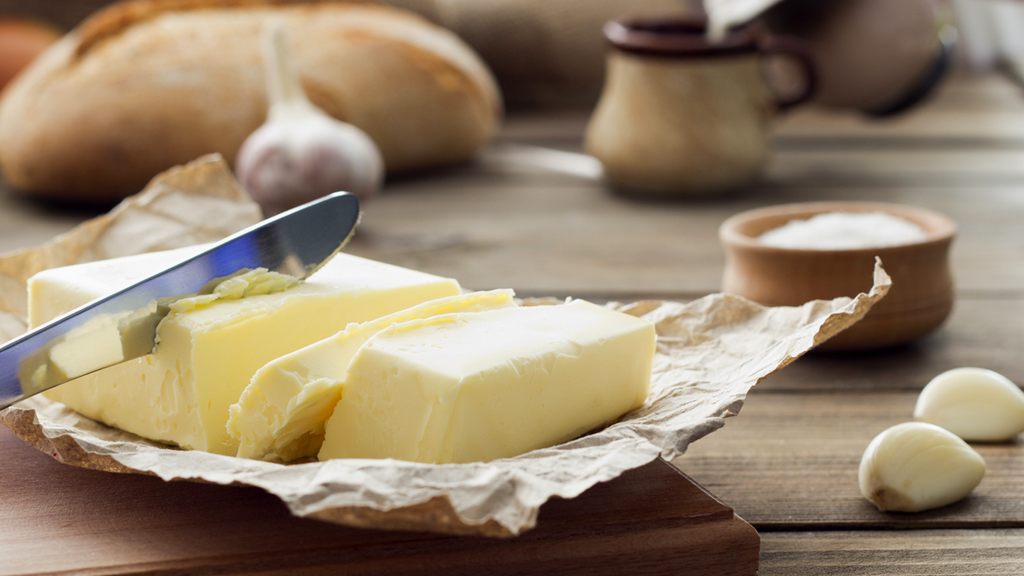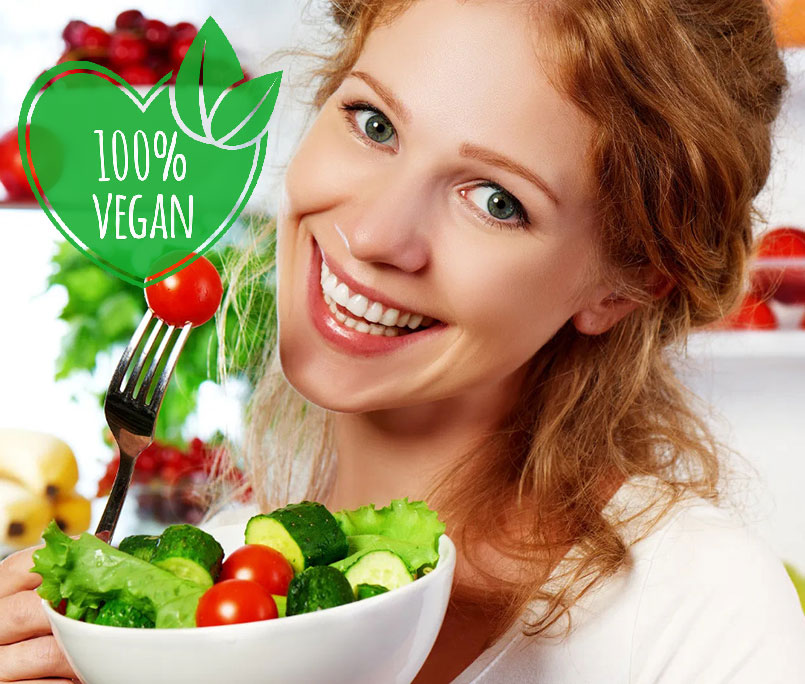What is Veganism?
Veganism, or veganism, more than just a diet, is a philosophy and lifestyle that seeks to exclude all forms of exploitation and persecution of animals for food, clothing or any other purpose.
Butter is one of the ingredients that most of us use frequently. If you or someone you love is on a vegan diet, you may be wondering if butter is suitable for eating. The short answer is no, butter is not vegan. Fortunately years ago butter was the only choice, nowadays dairy products in the supermarket are filled with a variety of butter and butter alternatives.

A vegan is someone who does not eat any food from an animal. Of course this includes meat, but it also includes eggs, dairy and some other animal by-products. So, to be more specific, vegans don't eat beef, chicken, fish, shellfish, or pork. All kinds of dairy products such as milk, cheese, butter, ice cream and yogurt are also excluded from their diet. And since eggs come from chickens, they are also prohibited. So no foods that contain these products - from pizza to smoothies, from cookies to omelettes - are not part of the vegan diet. Keep in mind that a vegan is different from a vegetarian who avoids all animal meat but generally consumes eggs and dairy products.
The word vegan is also used as an adjective to describe food made entirely from plants and anything that does not contain animal products such as fruits, vegetables, beans, lentils, whole grains and nuts, and anything made from these foods, such as hummus.
Butter is actually made from cream, the high-fat part of milk from a cow as we know it. Traditionally, the definition of butter is very simple, and theoretically butter contains little other than cream. However, today there are dozens of different products labeled "butter" on the shelves of the market, from hazelnut paste to fruit butter, almost everything that spreads like butter.
So since butter comes from the cream from a cow and vegans don't eat products from animals, it's clear that butter is not vegan and should be avoided by anyone eating a vegan diet.
Besides, it is a mixture of margarine, skimmed milk, water, flavors and colorants as well as a plant-based oil. There are also some types of margarine that do not contain any dairy. Since margarine requires a lot of milk to make butter, it is produced as a cheaper alternative to butter - up to 1 liters of milk is needed to make just 11 kilogram of butter. For this reason, margarine is not an obvious vegan alternative to butter, but may be if there are no animal products on the ingredient list. For this reason, it is important to always read labels carefully.
Vegan butter is not actually butter. It is not made from milk, cream, or any product from an animal. Usually vegan butter is made using oil and other plant-based ingredients to create a product that looks, acts, and tastes like butter but is not actually butter.
Now, when you hear or see the words "vegan butter", you will realize that it's a bit of a misnomer and means "vegan substitute product for butter" or "vegan butter-like product." But in the marketing world, these expressions are not appealing to the consumer. To avoid this confusion, many people label the product as "vegan margarine" which is slightly more accurate.

Apply Now
Veganism, or veganism, more than just a diet, is a philosophy and lifestyle that seeks to exclude all forms of exploitation and persecution of animals for food, clothing or any other purpose.
To explain very fundamentally, vegetarianism is to adopt a diet that does not contain animal food, to act consciously on issues such as the sanctity of living life and the sustainability of nature.
Vegetarian diets vary based on the foods they contain and exclude. Vegetarian diet types are; Lacto-vegetarian, Ovo-vegetarian, Lacto-ovo, Pescatary and Vegan
Vegan diets only involve eating directly plants (such as vegetables, grains, nuts and fruits) or foods made from plants. As it is known, vegans never consume meat, nor do they eat foods from animals such as dairy products and eggs.
Vegan diets only involve eating directly plants (such as vegetables, grains, nuts and fruits) or foods made from plants. As it is known, vegans never consume meat, nor do they eat foods from animals such as dairy products and eggs.
Many vegans avoid eating honey because commercial honey farming can harm the health of bees. The main function of honey is to provide bees with carbohydrates and other essential nutrients such as amino acids, antioxidants and natural antibiotics.
The vegan certification process can take from 1 week to 8 weeks, depending on the production conditions of the product. It all depends on the components, processes, suppliers and how well the suppliers communicate and how quickly the V-Mark expert team responds to their demands.
V-Mark vegan vegetarian certified products can use the V-Mark vegan vegetarian logo on their packaging, so vegan consumers around the world can get the product they buy with confidence and confidence.
Vegan Vegetarian Certificate ensures that the vegan or vegetarian consumer can safely select products suitable for their lifestyle at a glance. Therefore, it can be used for any product that can be proved by various tests and conformity audits and that we can encounter in our daily life.
Vegan diets only involve eating directly plants (such as vegetables, grains, nuts and fruits) or foods made from plants. As it is known, vegans never consume meat, nor do they eat foods from animals such as dairy products and eggs.
Vegan diets are known to help people lose weight. However, they also offer a number of additional health benefits. For example, a vegan diet can help protect your heart.
Everyone's metabolism is different, and different diets may produce different results for each person. However, there are many notable health benefits of maintaining vegetarian and vegan diets.
The vegan certificate is a certificate issued by accredited organizations to products that do not contain an animal ingredient and that are proven by various conformity assessments and tests in their production that no animal is exposed to any exploitation.
Vegan shoes are shoes that do not harm any animals and are made without using animal products in any way. It also excludes products tested on animals. This does not include many of the materials traditionally used in shoe making, such as leather, wool, fur, and some adhesives.
Vegan cosmetics defines cosmetic products produced by the fact that any product produced in the cosmetic industry does not contain any animal ingredients and no animals are used for testing.
Unfortunately, it is very difficult to be sure whether the product is vegan unless there is a vegan symbol certified by an accredited and fully independent organization such as the V-Mark. The most logical thing to do is to reach out directly to the manufacturing companies and ask; however, there is no certainty that you will get an honest answer.